We’ve implemented some new protocols around sending us messages via this website. Please email website “at” britishfantasysociety “dot” org for any issues.

For all things fantasy, horror, and speculative fiction
-
Announcement:
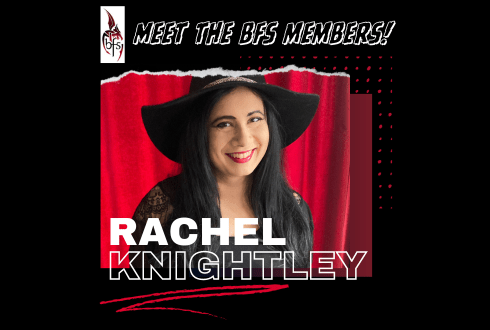
Meet Dr Rachel Knightley
Every Friday, we meet a member of the BFS and peer deep into their soul (or, at least, a form they filled out). Want to be featured? Email us: online@britishfantasysociety.org
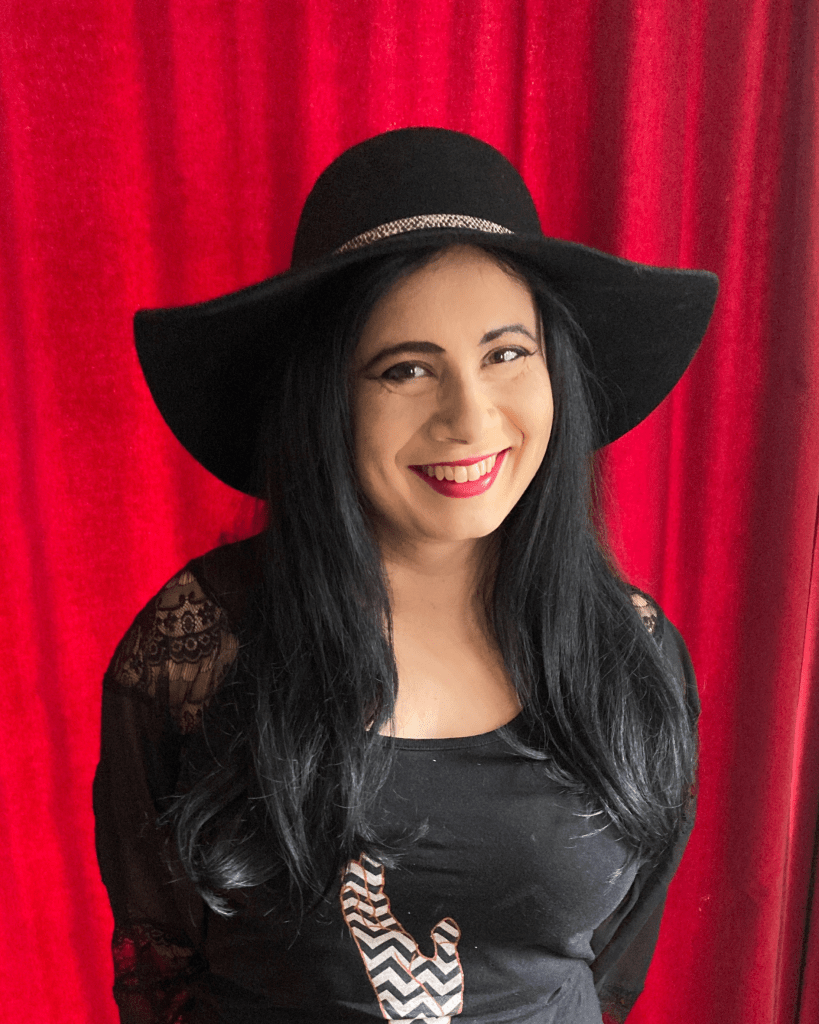
Name, including preferred pronouns
Dr Rachel Knightley (she/her)
Which region are you based in?
Southwest London
Genre you write
Horror and Dark Fantasy
Are you drawn to any specific sub-genres?
Domestic Noir
Your influences
Tell us about the book/film/thing that got you into horror: What was it? How old were you? What impact did it have on you?
Twenty years ago – way before I would have thought I was a horror writer or reader – it was the London in Literature and Nineteenth Century Fiction modules in the first year of my BA in English Literature, at the university where I’m now a visiting lecturer. The gothic in all the obvious places and all the less obvious places it crept in – Wuthering Heights, Jane Eyre, The Napoleon of Nothing Hill – felt like home. The true horror of what we can do to each other, knowingly and unknowingly, and where that can end speaks to me these days in Sarah Pinborough, as well as Tana French’s Dublin Murder Squad novels and Liane Moriarty’s darkly funny thrillers of the horrors that play out in families and communities beneath our collective noses, and how desperately we keep to ourselves out of shame what we’d do so much better to share.
How does that early influence show up in your writing now?
There is definitely a modern gothic sensibility, an appreciation of the interconnectedness of all our lives that I’ve enjoyed in The Woman in White and in the works of Lisa Jewell. Keith Ridgway also does that brilliantly in his short story cycle A Shock, with interconnected stories showing how all our lives link up yet how lonely city living remains at the same time. Maggie O’Farrell’s intergenerational mysteries around family roles, secrets and identity have always been a big inspiration.
Where do you draw your creative inspiration from?
When I talk to my MA and BA students and my coaching clients about this, I encourage them to think of our imagination, memory, observation and questions about the world as the palette of colours each of us has, and that the work comes in allowing yourself the freedom of mixing the colours however, and whatever comes to you. It’s not about where it comes from – it’s about the focus on curiosity (which is all confidence is in the end), and writing the ideas down when they pass and not expecting them to be there when I can be bothered to find a pen is vital.
Who do you look to as a horror hero? Why?
My favourite novelists tend to be in domestic noir: Liane Moriarty, Tana French, Maggie O’Farrell: not labelled horror writers but this was where I found what I love. In the horror community, I’ll always be grateful to Lynda E. Rucker for asking me to write a story for Uncertainties Vol. 3. A lot grew in a good direction from there, in my voice and my career.
Your writing
You’re stuck in an elevator for 60 seconds with that hero, and they want you to describe your work. Give us the pitch.
Lynda knows my phobia of lifts so that is never going to happen! But if I were talking to any of the above I’d tell the truth as clearly and calmly as I could: darkly funny domestic noir, usually set in and around “gothic Richmond”.
What are you working on right now?
My short story cycle, Twisted Branches, launches on 26 October. It’s a dark domestic noir on familial love, poisoned loyalty and how we knowingly and unknowingly mess up — and light up — each other’s lives. Artist and matriarch Effie clings to the house five generations of her family called home. But are its ghosts haunting her or is she summoning them? With Effie’s death, rejected protégé Kerry-Alice and daughter-in-law Veronica fight to lay her influence to rest in their own lives, but who is truly haunted and who is doing the haunting?
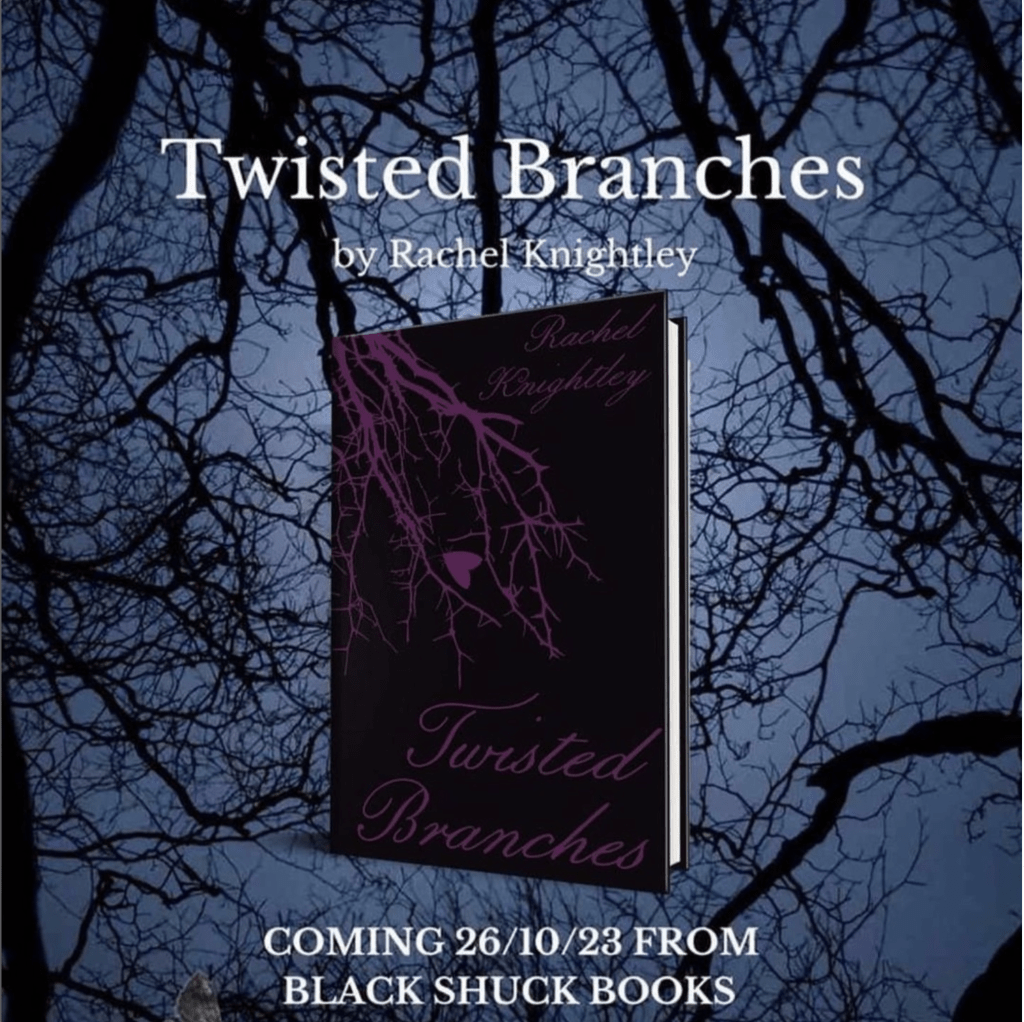
Now that’s on its way into the world I’m working on a domestic noir “Gothic Richmond” novel continuing in the universe of Twisted Branches with entirely different characters. I do incude a moment like something I enjoyed Maggie O’Farrell do between her first and second novel with a blink-and-you-miss-it allusion previous characters, with a mutual friend of theirs at a party in the new story.
Thinking about all of your stories, which one sticks out most in your mind? Why?
A question all my stories are asking, in one form or another, is are we more than the stories we tell ourselves? Becoming who you are instead of who your self-esteem has got it into your head that you’re supposed to be: that to me is what my whole professional life, writing and coaching, is about helping people find their own answers to in life and in art.
Where and when do you write?
Our front room is my den during the day and our living room during the evening. I see my coaching clients here too, physical or on zoom. My desk is by the window which means I have a large tree to look at while I’m staring into nothing/my thoughts, which works well. My writing brain is a big fan of direct light!
What’s the best advice you’ve received about creativity?
Get over your squeamishness of seeing something imperfect on the page.
What’s your writing soundtrack?
Angelo Badalamenti, particularly the Twin Peaks soundtrack; The Penguin Café Orchestra, Pink Floyd – all instrumental, all things I know well enough that they work as mental and emotional scaffolding: keeping me in place without being consciously distracting.
The (Spooktoberified) quickfire round
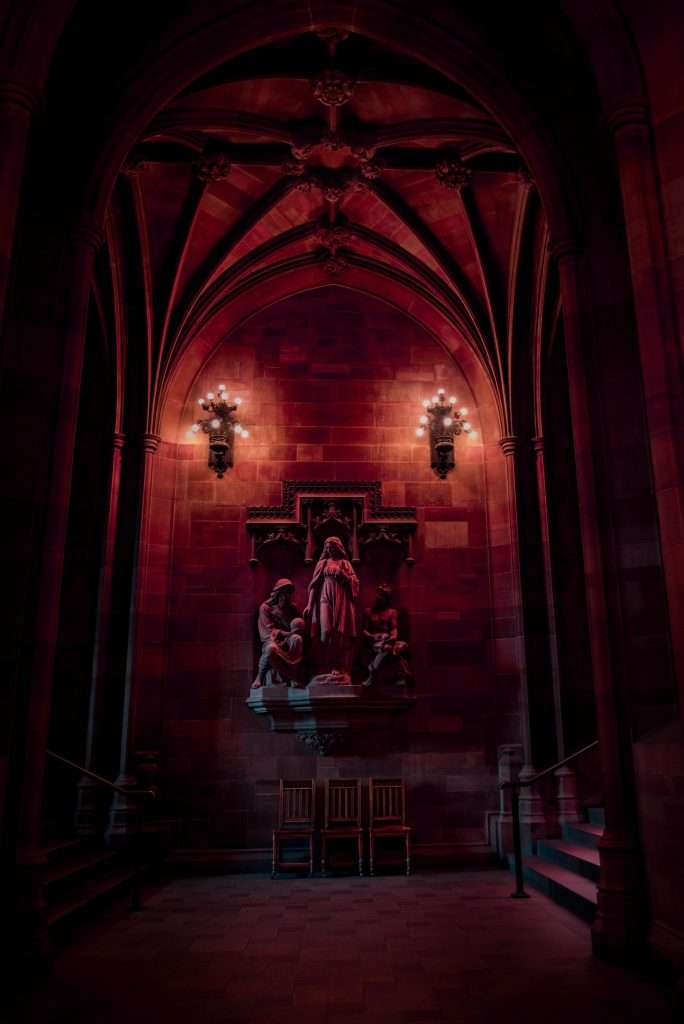
Stephen King or Ramsey Campbell?
Both. But Ramsey Campbell has supported my annual Green Ink Sponsored Write for Macmillan Cancer Support, so I’ll play favourites on that account. But what I want to say instead is Catriona Ward and Alison Littlewood.
Gothic or slasher?
Here I’m happy to be binary – and the answer is always going to be Gothic. Identity based mysteries, into who we are and who other versions of us could be, fascinates me while scaring me. Gore bores me while scaring me.
Vampire or werewolf?
Count Duckula, the vegetarian vampire, was a very early influence. Probably a role model too. I should probably go back and put him as my horror hero…
Creeping dread or noisy bloodfest?
Creepy dread all the way. Creepy is as much about the secrets we fear we’re hiding within, as much as anything that’s being hidden from us. Resolving the inner mystery is always the scary part, and the most rewarding (that’s why I love coaching as much as why I love horror!).
Strict lines or genre blend?
Genre is a means to an end. None of us are truly binary in anything. Follow your curiosity and you’ll end up with something no one else could ever have created. Follow your “shoulds” and you’ll be more aware of the road signs than the scenery.
Awards or bestseller?
The right readers.
Fiction or non-fiction?
Fiction in my heart, both on my CV. I wrote the WJEC/Eduqas Drama GCSE Study and Revision Guide and Your Creative Writing Toolkit, both published during lockdown. I also enjoy writing and presenting features for Blu-ray extras on horror and cult film. But fiction is where I truly ‘am’.
Poetry or prose?
Both, as a reader. As we’re in gothic world and talking of both, a shout-out is due to the exquisite Rosie Garland: novelist, poet, songwriter, voice of the March Violets. My favourite of hers is the collection Things I Did When I Was Dead, written during chemotherapy. She’s been one of my sponsored writers for Macmillan Cancer Support I the past too.
Plotter or pantser?
Genuinely both. I’m a fan of lily pads: key words for key scenes, so you’ve got the bullet points of the transformation but you’re not bound so tightly it’s stifling. . It’s a technique I use with my coaching clients as a way to give yourself what you need in your plan and for it to keep you curious rather than obedient.
Reading or listening?
Fiction: reading. Autobiography: listening. I don’t like a voice to ‘stand between’ me and my internalising of a fictional story but I’m happy to have the actors and writers I’m interested in talking to me about themselves over audio!
Notebook or computer?
Both, and in that order – if I’m going to get the best out of myself. Computer on its own if I’m in a hurry or it’s a sprint rather than a marathon, such as a review or an audio essay I’m writing in order to read; notebook if I’m there to enjoy myself and see what floats out of my mind and into the world.
Favourite horror book of all time?
My favourite opening image of all time is Maggie O’Farrell’s My Lover’s Lover where the protagonist is in mid-air when the story starts, falling over a paving stone and seeing, upside down, the man who will help her up – and turn out not to be the right person to have met at the wrong moment at all… But if you want a book that is unarguably horror, Heart-shaped Box by Joe Hill. Before I lived with my partner I ‘borrowed’ that and only gave it back when I moved in!
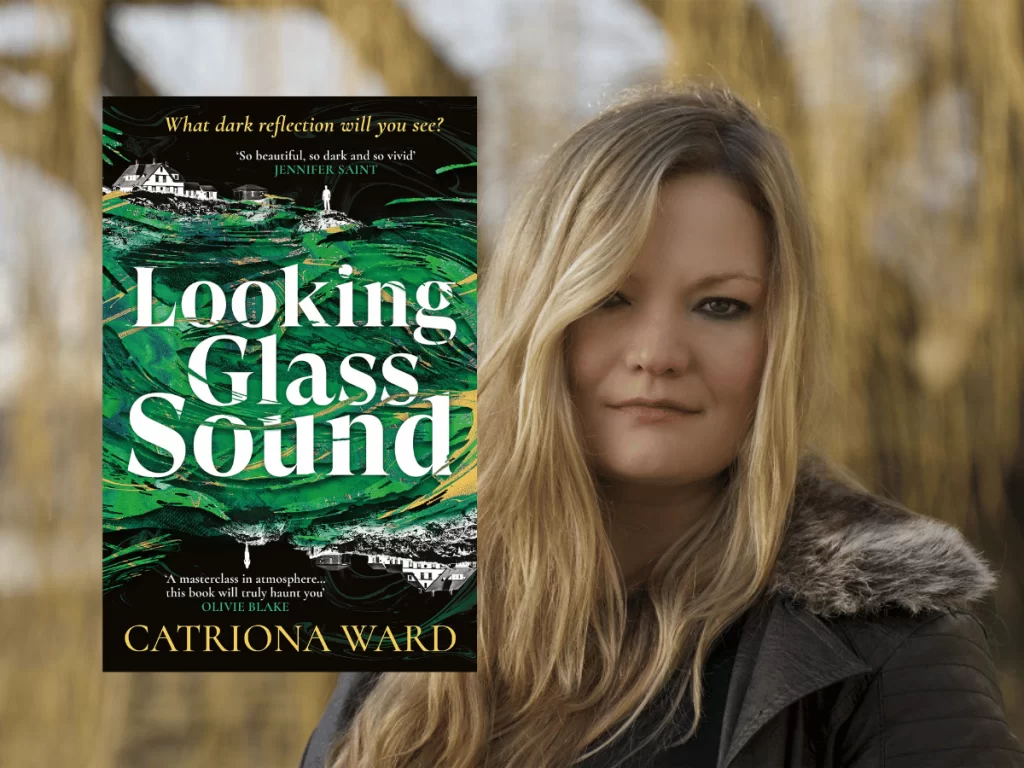
Last horror book you read?
Looking Glass Sound by Catriona Ward.
Any horror author on auto-buy?
Catriona Ward, Tana French, Liane Moriarty, Alison Littlewood.
Favourite podcast?
I’m going with the luxury of being honest and saying how much I’m loving mine: The Writers’ Gym! It’s been such a delight to interview everyone and support writers moving through their blocks to make healthy writing habits. A new series is on its way in the next couple of months.
The home stretch
What scares you?
Any lock I don’t understand. I’ll save the story of why – though I suspect a lot of members of the BFS will have already heard it if they’ve stayed in the same hotel as me and now why I’ll never use a lift! – because I think I’m nearly ready to write it.
What’s the best thing about being a horror writer?
Other horror writers. Truly the most welcoming and generous community I’ve ever known.
Time to plug your stuff! Where can we find you and your work? What have you got coming up? Consider this your advertising space.
- My new book, Twisted Branches, will be released through Black Shuck Books on 26 October. Join me for an in-person launch in London, or the online launch.
- My collection, Beyond Glass, is also available through Black Shuck.
- Your Creative Writing Toolkit is available here.
- The WJEC/Eduqas GCSE Drama Study and Revision Guide is available here.
- Listen to The Writers’ Gym podcast on Spotify, Apple, anywhere you get your podcasts
Explore the blog:
Blog categories:
Latest Posts:
Tags:
#featured (56) #science fiction (25) Book Review (264) events (44) Fantasy (231) Graphic Novel (13) horror (136) Members (62) Orbit Books (48) profile (43) Romance (17) Science Fiction (50) short stories (28) Titan Books (52) TV Review (15)
All reviews
Latest Reviews:
- THE HOUSE ON THE BORDERLAND by William Hope Hodgson
- Monstrum by Lottie Mills
- Mood Swings by Dave Jeffery
- Yoke of Stars by R.B. Lemberg
- Hera by Jennifer Saint
- The Black Bird Oracle by Deborah Harkness
- RETURN OF THE DWARVES By Markus Heitz
- Delicious in Dungeon
- Toxxic by Jane Hennigan
- THIS ISLAND EARTH: 8 FEATURES FROM THE DRIVE-IN By Dale Bailey
Review tags:
#featured (2) Action (4) Adventure (4) Book Review (28) Fantasy (18) Featured (2) Feminist (2) Gothic Horror (3) Horror (14) Magic (3) Orbit Books (3) Romance (6) Science Fiction (5) Swords and Sorcery (2) Titan Books (7)